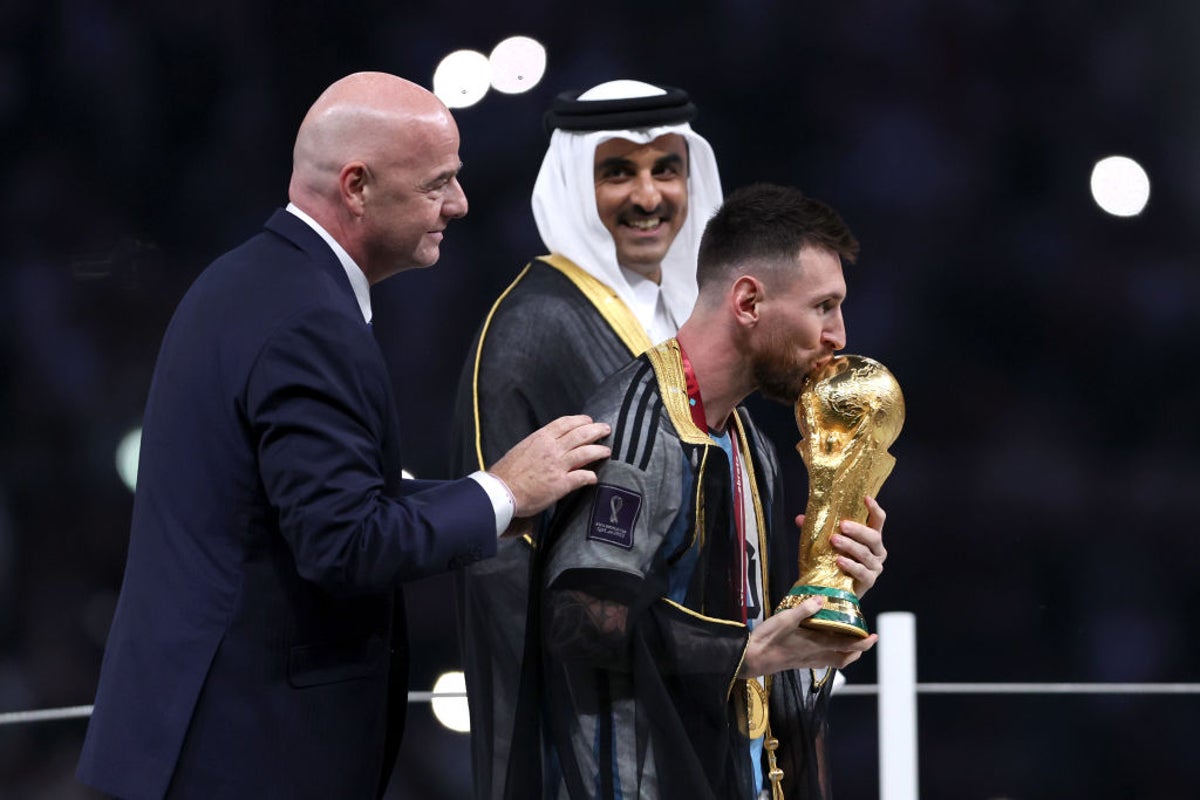
The first thing you notice is the brilliance of the gold. It’s simply impossible to take your eyes off it. There was Lionel Messi walking through the mixed zone with the World Cup itself, the very trophy confirming that he is a world champion and the greatest in history.
Shortly before that, Hassan Al Thawadi – the grandly titled Secretary General at the Supreme Committee for Delivery and Legacy – had been in the exact same spot, proclaiming this as the greatest World Cup in history, only his words as confirmation.
Gianni Infantino had already said the same, happily moving on from Russia 2018, which had also been described as the best ever. Political realities have changed perceptions since then. Political realities should influence perceptions of Qatar. This points to one of the many conflicts of this World Cup that those contrasting scenes underneath Lusail Stadium encapsulate, and really set the legacy of Qatar 2022.
It is obvious to anyone watching that the football went to emotional heights rarely seen even in a competition as historic as this. You only have to remember how immersed you were in so many matches, from Cameroon-Serbia (3-3) to Morocco’s run and Argentina vs Netherlands, right up to the final itself. That will be the memory of the football – the constant drama, from start to finish, arguably more than any World Cup.
It was enthralling. It was also entirely independent of the hosts. What Qatar was like as the stage was irrelevant to what the football was like as sport. It is ludicrous, and a last attempt at political appropriation, to try to claim that had anything to do with the hosts. The football happened in that way because of multiple factors related to the evolution of the game, with the grandest influence being the great meaning of the World Cup itself. Its image, put very simply, is inspiring. That’s one other reason it’s impossible to take your eyes off.
That is precisely why these states and autocracies have for so long wanted to use it. It’s also why it is impossible to separate the two here. It is usually at this point, after all, that the legacy of a competition would be split into what it means for the football and what it represents as an event.
That can’t be done here. The two are intimately intertwined, right down to how politicised many events directly related to the football were – from the OneLove armband being threatened with sporting sanctions to the support for Morocco from the Muslim world and even Messi wearing a bisht given to him by the emir.
This was, inevitably and almost fittingly, a World Cup of geopolitical tensions and conflicts. It potentially opened a new era in football, especially with how Infantino rather astutely articulated this growing split between “the West” – football’s economic power base – and the rest of the world. Argentina’s win was symbolic in that sense, in how it prevented another wealthy Western European country winning the World Cup for the fourth successive time. That is highly important for the vitality of the game.
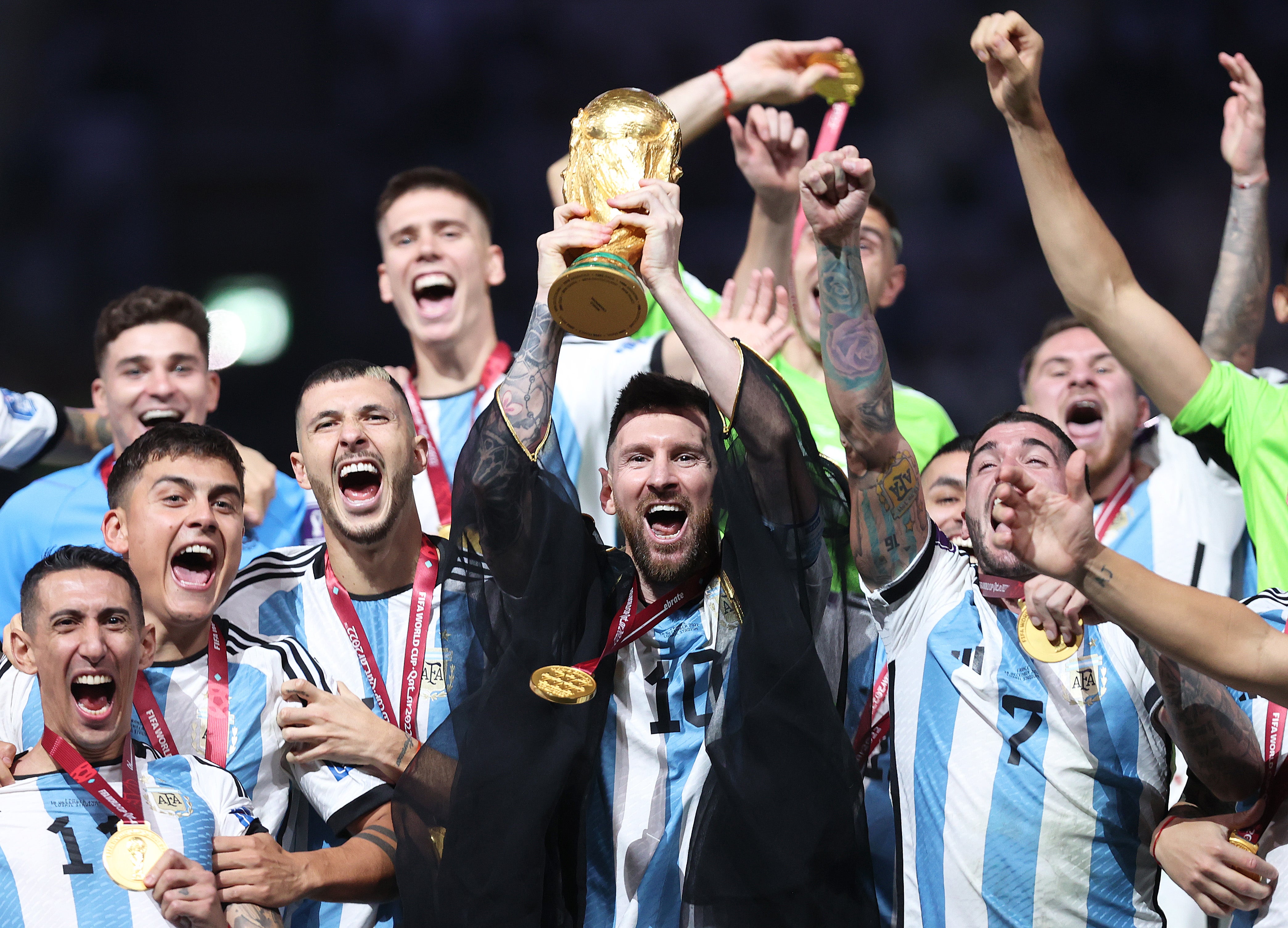
This era only opens, however, because another closes. The reality of that is something that’s almost difficult to register right now. The Qatar World Cup has weighed over, framed and conditioned football for 12 years and now it’s over, the sport is left to reshape itself anew amid all manner of ructions significantly influenced by this tournament. We are currently in one of the most volatile periods in football history, with many anticipating some kind of reset.
Several sources describe a coming “war” between Fifa and Uefa. Qatar, meanwhile, has considerable influence over the European club game, through Paris Saint-Germain and Nasser al-Khalaifi’s leadership of the European Club Association. That puts it at the forefront of one of the sport’s two driving forces right now, which is American capitalist return on investment on one side and Gulf bloc political ambition on the other. This World Cup may well have set the path to Saudi Arabia 2030.
It made the symbolism and political meaning of a PSG player like Messi winning the trophy all the more potent. The Argentine’s legacy is of course what this World Cup will be remembered for above anything else. It is an immortal storyline that ensured all the investment paid off for Qatar.
It also fosters this sense of an era closing. The Messi-Ronaldo era is over, one potentially having left elite football in ignominy, the other having claimed the greatest victory of all. Many other figures may have been involved in their last game at this level, from Gareth Bale and Luis Suarez to Louis van Gaal. All pushed themselves to those physical and emotional limits, which enriched and invigorated this last 32-team tournament.
This World Cup did remind us how core values of spirit and clever management can make a difference against the greatest ideas and greatest players, none showcasing that more than the eventual winners. Argentina are far from one of the best teams to have won the World Cup. They did have the best player but it shouldn’t be overlooked this win wasn’t possible with superior squads, in 2006 and 2014. It wasn’t all down to him but it was all built up to him.
The final was a fitting follow-on and crescendo from all the football that came before, a brilliant blow-for-blow between two megastars.
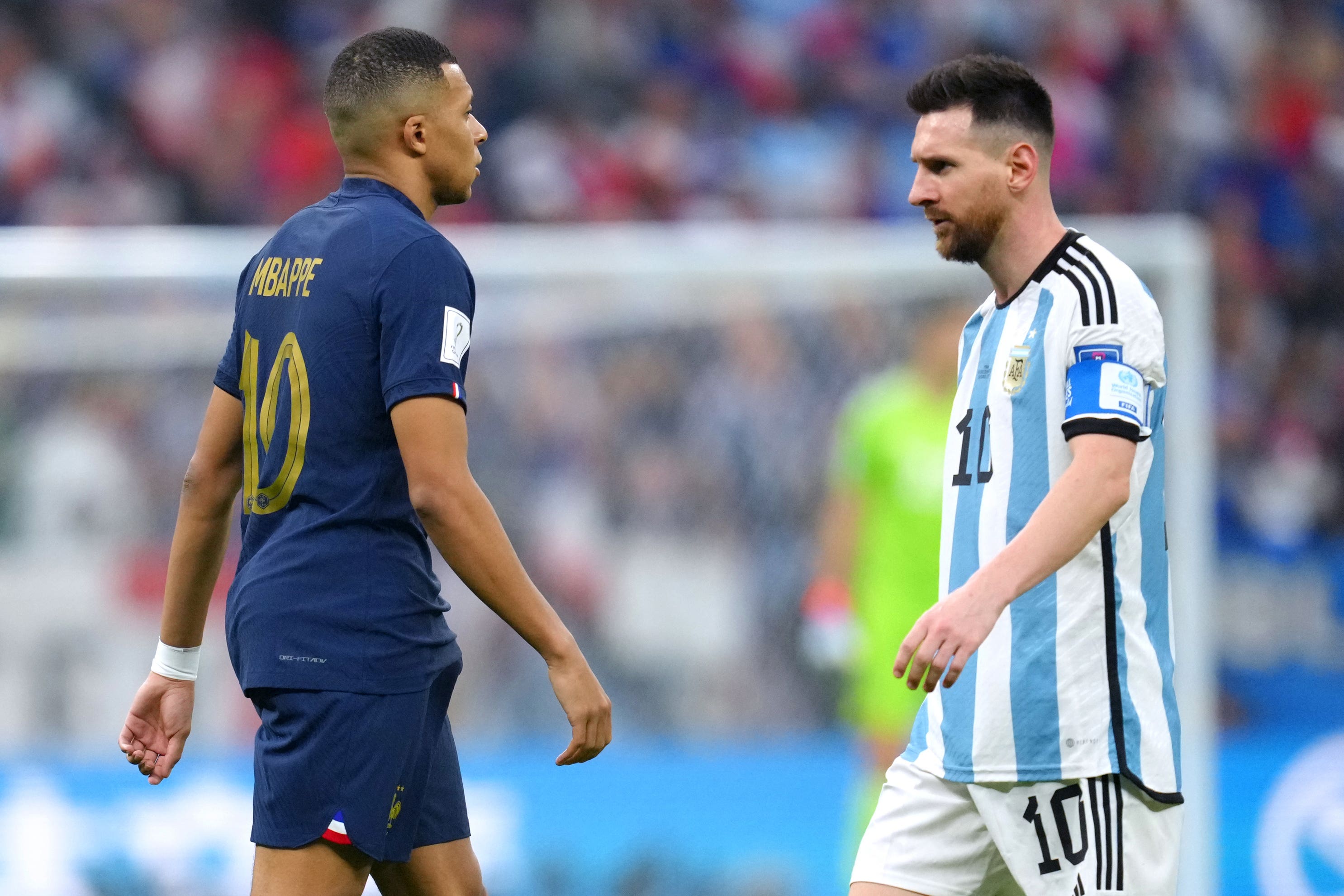
Messi won a decisive victory over his electric clubmate Kylian Mbappe, but it feels we’re already in the latter’s era anyway. He didn’t win a second World Cup by the age of 23 but he did score eight goals to beat Messi to the golden boot. He’s only getting going – and may well be moving, given there is a feeling that the player believes he has fulfilled his time at PSG by staying there for this World Cup in Qatar.
So much of it was about this. All of it was of course announced by the vacuous official slogan “Now is all!”. It meant far more than intended. The audience were implored to only look at the football, to feel the emotion of it all, and not look at anything behind or around. If you’re only concentrating on now, you don’t really consider the manner that this entire World Cup infrastructure was built, on a system of modern slavery. You don’t consider why it was held, which was basic sportswashing and political aims.
This is a view echoed by Ziad Ihais, the brother of the Fifa whistleblower Abdullah Ibhais, whose family are pushing for the United Nations to recognise his imprisonment as arbitrary detention.
“Was ‘Now is all’ telling the story of a dream that comes true? Or was it a direct message to the world to look away from its dear human price? When Abdullah went to the site of the migrant workers on 4 August 2019 he found their camp without electricity in the middle of summer, without food or drinking water, with payments four months behind, but Gianni Infantino tells us in clear words and tone, ‘focus on football’; playing the World Cup is all that matters, never look at migrant workers who died and suffered in Doha, never look at people silenced in Doha prisons, just enjoy football, and the rest is none of your business.
Image was all. It is true of literally every facet of this World Cup, that Qatar and Infantino are so willing to congratulate themselves over.
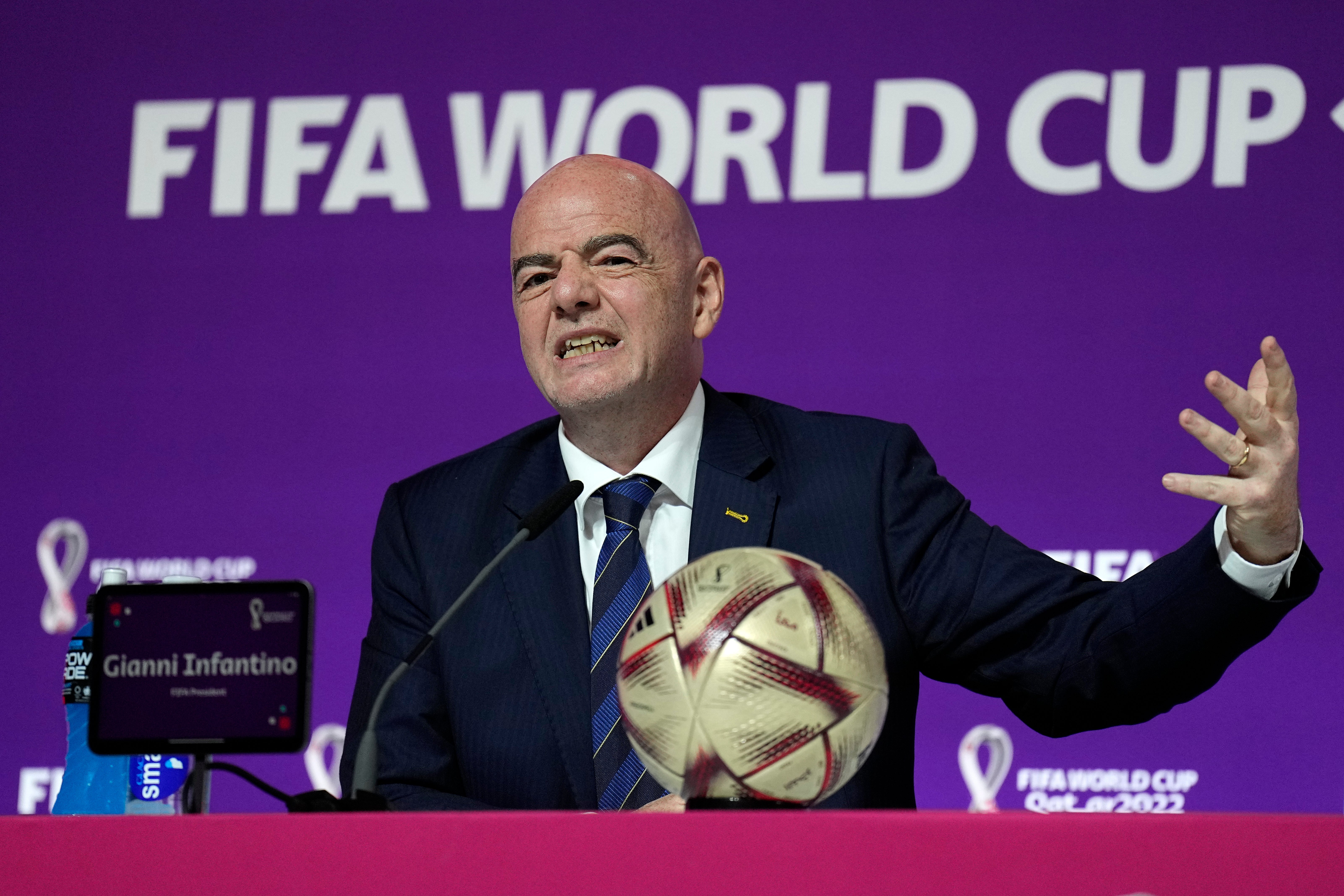
Take the controversy that kicked it off, over the sale of alcohol in stadiums. It was another lie. You could of course buy alcohol in stadiums – provided you paid enough to be in the VIP or VVIP areas. Ethical considerations didn’t seem to go as far as denying the highest bidders. This is also true of the entire state.
There was then the argument that the lack of alcohol made the World Cup safer. Alcohol was actually plentiful. It’s easy to get in Qatar. You just don’t see it because the numerous bars are hidden away from the public, in hotel basements or on rooftops. It is far from only Westerners or ex-pats who drink there.
What actually made the World Cup “safe” of course is that Qatar is a police state. It’s not so safe if you’re a political dissident or – as in the case of England fan Anthony Johnson who was stripped naked by security staff – if you try and enter a stadium with rainbow colours. It has long been noted how the Palestinian flag has rightfully been allowed at this World Cup but the rainbow flags were not, indicating that any argument about keeping politics out runs so hollow.
When The Independent reported that missives had eventually been sent to security staff that items featuring the rainbow colours should be permitted, one Fifa source was keen to stress that the word “welcomed” should not be used. That’s apt. It didn’t always feel that welcoming. You could constantly feel an element of suppression, not least when around migrant workers.
You only have to look at the experiences of many LGBT+ people in Qatar, too. That’s not “safe”. That’s just a security state. Then there’s Infantino’s boast that one of its great successes was “bringing people together”. It’s a pity that spirit of inclusiveness didn’t extend to members of the LGBT+ community or the migrant workers.
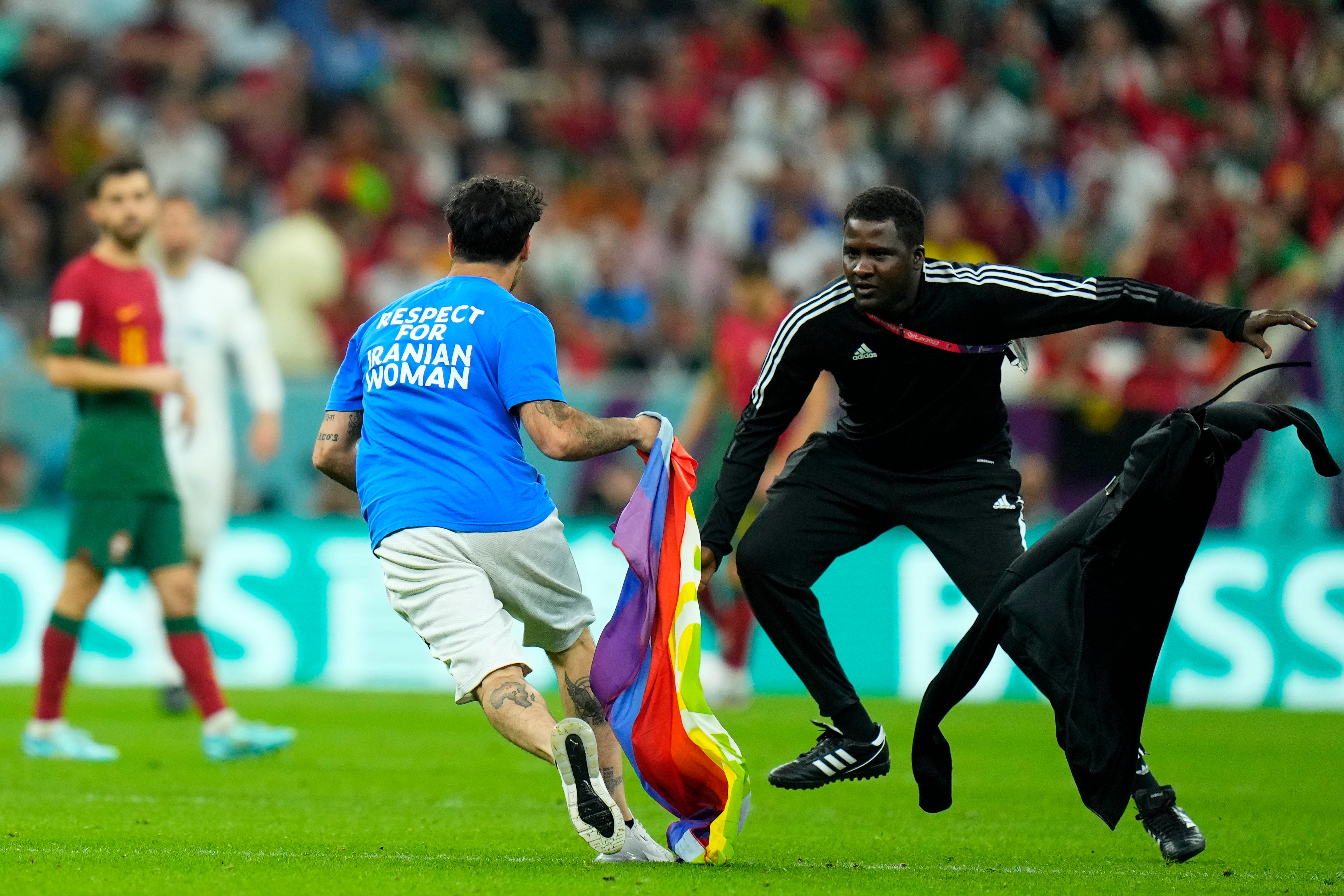
The ubiquitous presence of the latter, essential to making everything run but ungratefully overlooked, made Qatar feel like what the Deep South must have been like in slavery. It remains shocking that a World Cup was held on this system in 2022, and that people’s desperation can be exploited in this way. All human rights groups are similarly describing this World Cup as a lost opportunity in terms of reform. That is its most lamentable legacy. All this for what?
The issue undeniably put supporters of many countries off travelling, which is another fact that undermined Infantino’s arguments. It must have been one of the poorest attended modern World Cups. One defining image is tracts of empty spaces, both in stadiums for the biggest games and in public areas. The Souk Waqif was the only place that felt like the global party that a World Cup should be, where there was a sense of people from all over the planet coming together.
And it was still only really fans from Argentina, Mexico, Saudi Arabia and Morocco. One source talked of how Brazil had been going out was a “disaster”, because they had been anticipating a big build-up to the ultimate South American derby, with their elimination instead leaving something of a vacuum.
Morocco’s surge to the semi-finals was one of this World Cup’s better stories, but it sums up so much that can’t be detached from the host country either. It meant more that a team from a Muslim nation over-performed in a Muslim nation, and it was one of the more positive feelings in Qatar over the last month. Morocco should really have been the first country from the region to host a World Cup. They are instead the first country from the region and the entire continent of Africa to reach a World Cup semi-final. That is one of the better legacies of this World Cup.
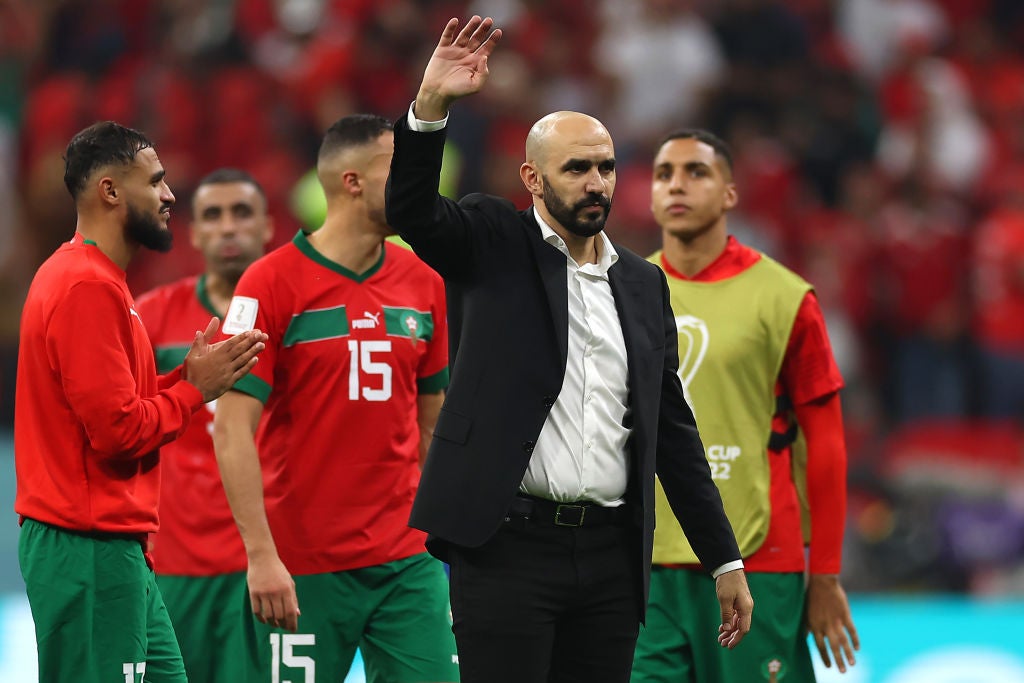
The benefit of the setting doesn’t justify the many negatives of the hosts, though. The football world shouldn’t be so blithe about autocratic rulers. You only have to look at the reaction to reservations about the emir placing a bisht around Messi at the trophy lift, ensuring his personal touch was central to one of the most photographed moments in history. Anyone questioning an autocratic ruler’s motivations here was labelled a “racist” or “orientalist”, showing how successful one of Qatar’s public relations strategies has been.
It is the first time that the captain has been wearing anything other than his country’s own sporting gear when lifting the World Cup. It was also the first time when Fifa didn’t feel fully in charge of their event. A number of sources talk about how it constantly felt like Qatar was calling the shots.
Coincidentally, this was not just the last 32-team World Cup but the last with a local organising committee. There should be lessons for the governing body here. A proper human rights threshold should obviously come into consideration for every future tournament.
Instead, political momentum is already building to bring the 2030 World Cup to Saudi Arabia. Qatar had a lot of success in that sense. It wasn’t just a football competition. It was a geopolitical summit, with so many high-level meetings. Its international image has been undeniably improved. The importance of the state has been enhanced.
As regards one of the more important figures in the staging of this World Cup, Thawadi was asked by The Independent in that mixed zone about the Ibhais case. There was about a two-second look and then just a thumbs up before he walked off.
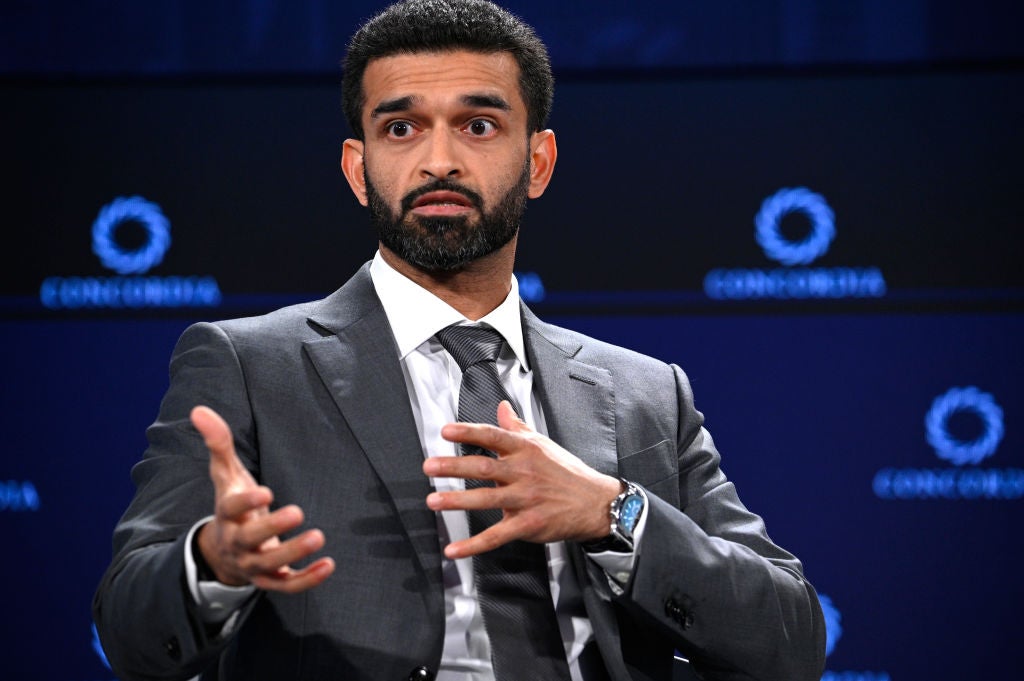
Ziad Ibhais, a Jordanian national of Palestinian descent, offers a summation of the last month and so much more.
“It is easy for Qatar – and for any country with loads of surplus – to buy an image of success. Bags of money could buy anything, it can buy you the service of the best engineers and the top constructors to build the best possible stadiums and infrastructure, it could buy you the best cars and airplanes. But can all this be real success?”
It is of course the greatest success for Messi. He has enjoyed the ultimate victory, in a manner that the brutal reality of sport often precludes. It’s a beautiful story, perhaps football’s best. It’s just now been used in the most cynical way. It’s hard to see that when you’re focused on that image, the gold.







